

Exploring impactful, efficient, ethical, and equitable uses of technology for greater access to quality education and career opportunities

The continued emergence of new technologies in education, such as generative artificial intelligence (AI), challenges education policymakers as they seek to understand and make decisions about how best to deploy educational technologies (edtech) effectively, efficiently, equitably, and at scale, to ensure that all learners have access to quality educational opportunities.
While it has improved over the past decade, the edtech sector still suffers from a shallow base of rigorous academic research, and much of the research that does exist focuses on the use of educational technologies by, and to the benefit of, communities of privilege, especially in highly industrialized nations of North America, Europe, and East Asia. While new technologies may expand opportunities for many learners, they also risk leaving many communities and individuals behind.
In the Center for Universal Education, housed in the Global Economy and Development program at Brookings, we are working to make the emerging global knowledge base in this area more accessible to decisionmakers and other interested parties. Here we aim to summarize and analyze the best of academic research and emerging expert practitioner experience, with particular attention to emerging opportunities, risks and challenges related to AI and other new technologies in education, equity, and opportunities for scale.

Rebecca Winthrop
April 8, 2025

Mary Burns, Rebecca Winthrop, Natasha Luther
February 6, 2025

Mary Burns, Rebecca Winthrop, Michael Trucano, Natasha Luther
October 15, 2024

Rohan Carter-Rau, Brad Olsen
November 20, 2023

Natalie Evans, Jamie Jirout, Kathy Hirsh-Pasek
August 22, 2023

Michael Trucano
July 10, 2023

Kathy Hirsh-Pasek, Elias Blinkoff
January 9, 2023

Annelies Goger, Allyson Parco, Emiliana Vegas
May 17, 2022

Emiliana Vegas
March 11, 2022
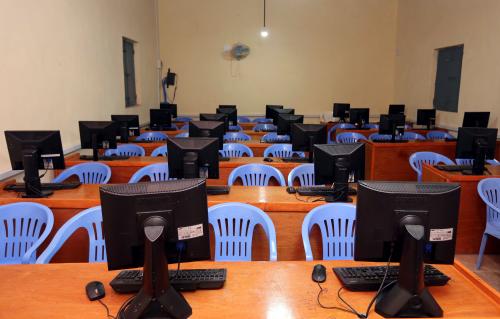
Michael Hansen, Emiliana Vegas, Fred Dews
November 19, 2021

Emiliana Vegas, Michael Hansen, Brian Fowler
October 25, 2021

Brian Fowler, Emiliana Vegas
September 20, 2021
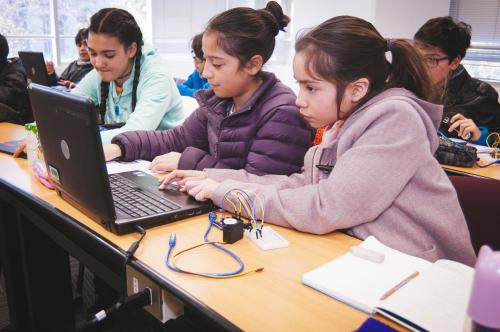
Brian Fowler, Emiliana Vegas
August 30, 2021

Emiliana Vegas, Sheral Shah, Brian Fowler
August 23, 2021
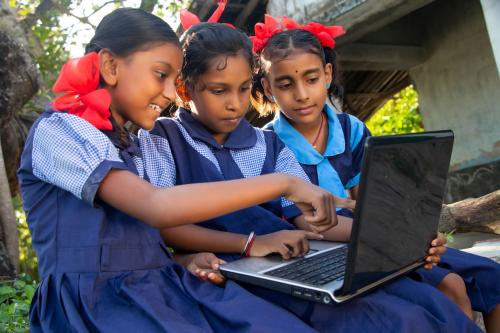
Emiliana Vegas, Sunhwa Lee, Unika Shrestha
August 23, 2021

Yuri Nesen, Brian Fowler, Emiliana Vegas
June 25, 2021

Brian Fowler, Yuri Nesen, Emiliana Vegas
April 16, 2021
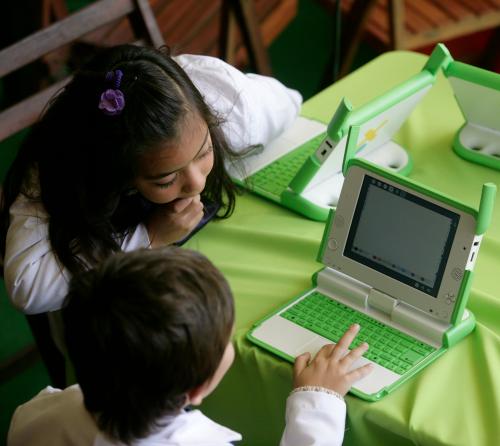
Brian Fowler, Emiliana Vegas
March 12, 2021

Brian Fowler, Emiliana Vegas
January 19, 2021
2021
Online only
Wednesday, 12:00 pm - 1:00 pm EST
2020
Online only
Monday, 9:00 am - 11:00 am EDT

Alejandro J. Ganimian, Emiliana Vegas, Frederick Hess
September 10, 2020

Alejandro J. Ganimian, Emiliana Vegas
September 10, 2020

Emiliana Vegas, Brian Fowler
August 4, 2020
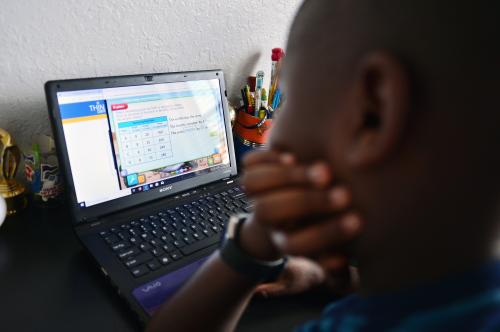
Victoria Collis, Emiliana Vegas
June 22, 2020

Emiliana Vegas, Lauren Ziegler, Nicolas Zerbino
November 20, 2019